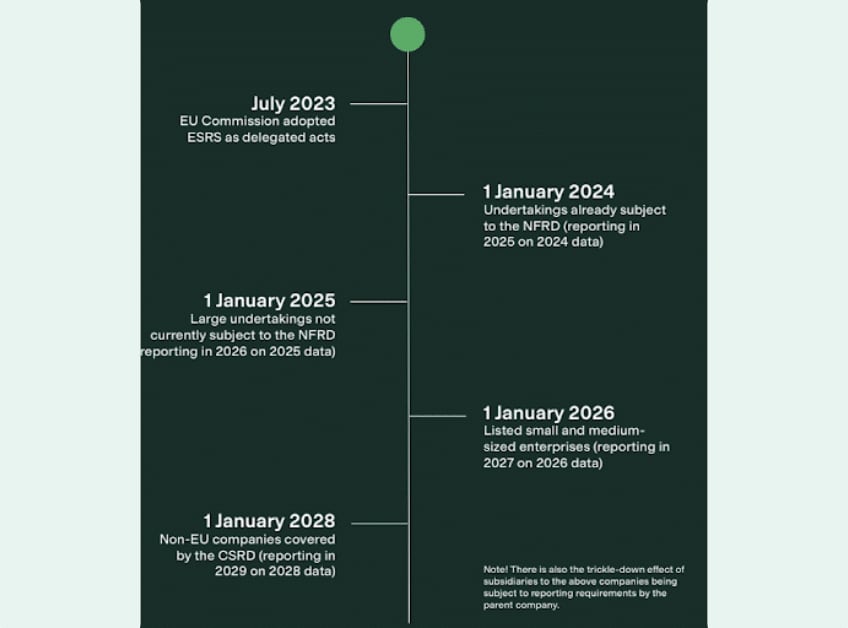How will CSRD adoption in Norway impact your business?

On 15 March 2024, the Norwegian government gave the European Corporate Sustainability Reporting Directive (CSRD) the stamp of approval, and this will now be incorporated into the Accounting Act. This will change how companies disclose information about sustainability and requires some work going forward.
“Many have been waiting for this news, and it is good to see that the Norwegian government is harmonising regulations for sustainability reporting within the EU,” says Dyveke Elset, Senior Manager in Position Green Norway.
The CSRD will require the following:
- The sustainability report must be included in the management report.
- A limited third-party assurance of the sustainability report is required.
- The report shall be aligned with the European Sustainability Reporting Standards (ESRS) and digitally tagged.
- The standards applied must be based on a double materiality assessment.
- The report shall include reporting on the EU Taxonomy.
Increased transparency
The CSRD and ESRS are key in the EU’s efforts to harmonise reporting, increase transparency and avoid greenwashing. Key elements that undertakings are asked to communicate are:
- The resiliency of the business model against sustainability-related risks and opportunities.
- Integration of sustainability in strategy, including targets, KPIs and transition plans.
- Role of executive management and board of directors, including their knowledge and expertise on sustainability matters.
- Governing documents, procedures and incentive schemes to manage sustainability-related impacts, risks and opportunities.
Who will be subject to the CSRD?
Approximately 1,200 Norwegian companies are estimated to be subject to the CSRD, and there will be a gradual implementation based on company size.
The types of enterprises that will be subject to CSRD in Norway are:
- Limited companies
- Public limited companies
- Banks
- Credit and insurance companies
- State enterprises
- Norwegian headquartered companies above the threshold values that have securities listed on a regulated market in Norway.
State enterprises were not included in the original CSRD but are included in the Norwegian legislation, demonstrating the need to be aware of local variations in the application of EU Directives.
When?
Large undertakings have already started preparing for their 2024 report, as they will be subject to report according to the new regulations next year. Undertakings will need to prepare in accordance with the timeline below.

Where to start?
While the timeline might seem short, and the amount of work that must be done feels intimidating, it is important to remember that this directive is here to guide and help companies. Companies that have been using voluntary reporting standards such as GRI, SASB, CDP and the Task Force on Climate-related Financial Disclosures (TCFD) are well positioned.
“Regardless of where your company is on its sustainability journey, we urge our customers to see the CSRD and ESRS as a useful tool to incorporate and manage sustainability,” says Dyveke Elset.
To start the process, Dyveke recommends the three following steps:
- Conduct a double materiality assessment. This is the cornerstone of your reporting and strategy as it identifies which ESRS you are to report on.
- If you already have a sustainability report, do a gap analysis against the applicable ESRS and plan how to close the gaps.
- Digitalise your reporting. It makes it easier for you and your auditors.
How can Position Green help?
Set your sights on CSRD compliance with tailored advice from our in-house experts – from double materiality assessment (DMA) and gap analysis to a robust strategy and readiness roadmap.
Position Green’s ESRS software is designed by sustainability experts to support all aspects of your journey. Collect and report reliable data from your entire organisation and value chain. Do your DMA directly in the software, and set targets and metrics to ensure compliance.

Dyveke Elset
Senior Manager
Position Green


